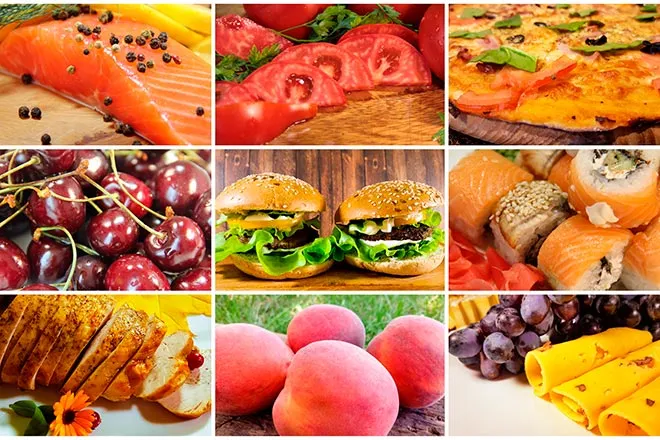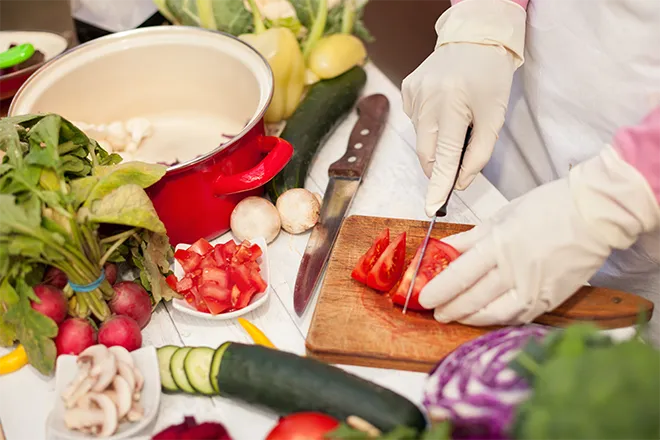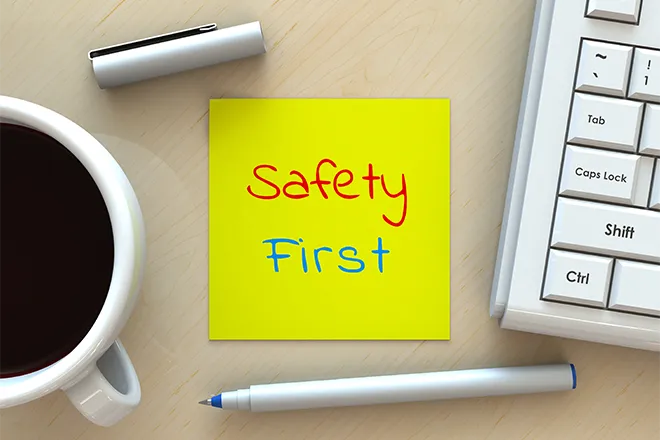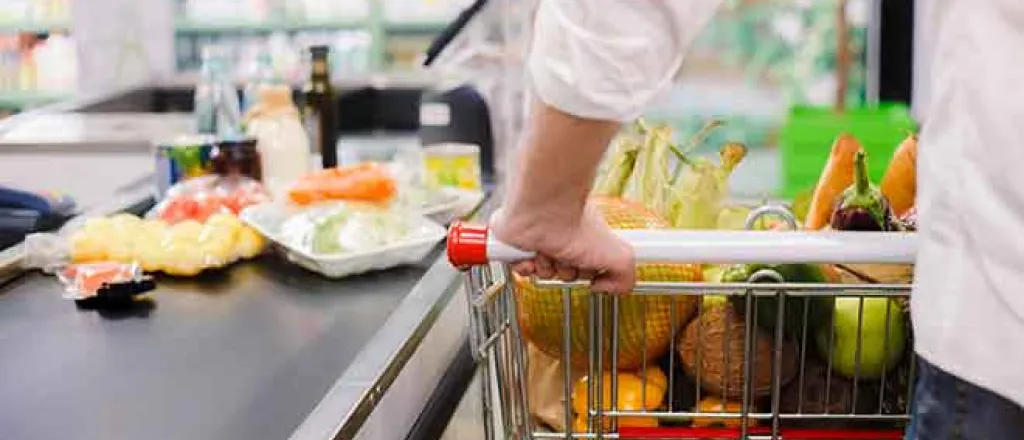
Q&A: Can a Small-Town Food Co-op Survive?
Cathy Stanton is a former romance novelist, arts administrator, and ethnographer. Today, she lives in Orange, Massachusetts where she helps run her local food cooperative, Quabbin Harvest Food Market. She also commutes to Tufts University where she teaches courses in Anthropology and Environmental Studies. Her forthcoming book, “Food Margins: Lessons from an Unlikely Grocer,” is based on her experiences trying to build a more sustainable local food system from the ground up.
Enjoy our conversation about the origins of the supermarket, the irony of rural food deserts, and the beauty of being rooted, below.
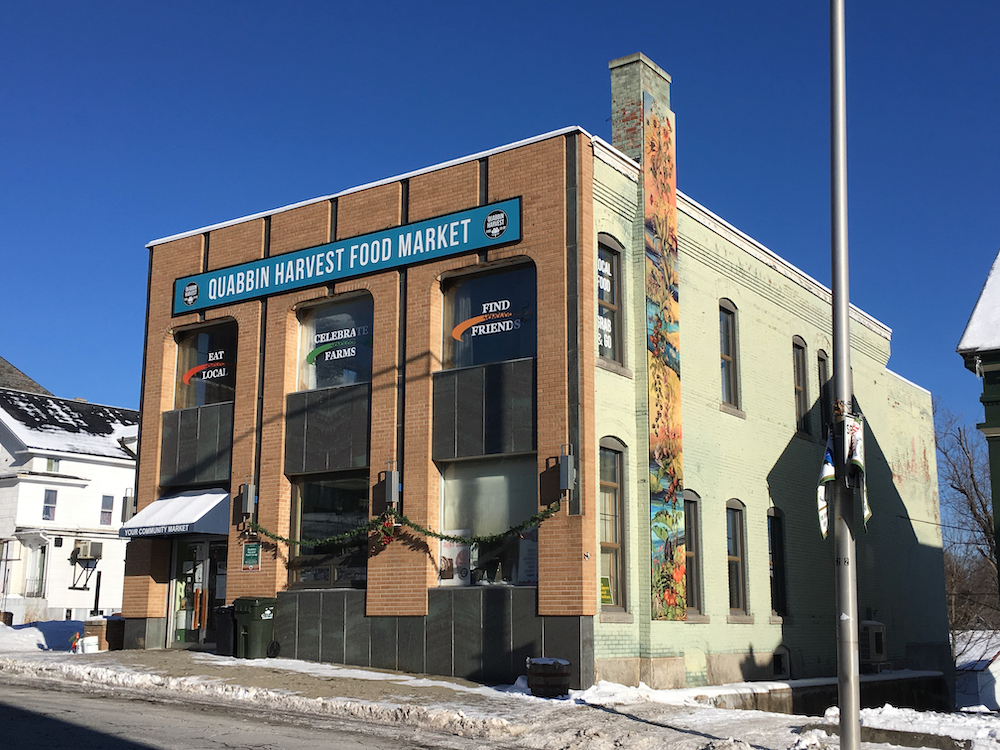
Olivia Weeks, The Daily Yonder: Can we start with your bio? Tell me a little bit about yourself.
Cathy Stanton: Sure, where to start? I teach Anthropology and Environmental Studies at Tufts University. I'm an interdisciplinary scholar and I call myself a late-blooming academic. I started this career quite late in my life. And so I teach in Boston, and I live on the edge of the Connecticut River Valley, about 75 miles to the west. The book that I've written is about the rural community that I live in. And before that, I've been an arts administrator, adult educator, musician, and various other things.
DY: So in the beginning of the book, you wrote about how you grew up in a small town and watched the food supply system there change over the course of your upbringing. Can you talk about how that connects to your writing and your current work?
CS: Sure. So I grew up in what was a small town in southern Ontario and is now part of the gigantic suburban sprawl around the Greater Toronto Area. I'm in my 60s and the starting story in the book was about the fact that supermarkets really weren't the way that everybody got all their food. Even within my memory and within my lifetime, supermarkets have become ubiquitous and the main engine of the food system that feeds most of us. So in town when I was a kid, there were still dairy farms around the edge and there was still some milk delivery. There were a lot of farms actually, and they're just all gone now, so that part of the world has lost its agricultural base entirely. So it's kind of exemplary of what's happened to the food system more generally, although it's uneven. It happens in different ways, in different places, but in general, even in rural places now, supermarkets are the way that most people get most of their food.
DY: Yeah, I was interested in the problem that you laid out at the start of the book, which is that it's only profitable to feed people at the very largest of scales. I was hoping you could elaborate on that point.
CS: So that's actually one of the main reasons I wanted to write the book. I got involved in this little grocery business not knowing anything about the economics of the food system. I knew something about the politics of it and the history of it, but I had no idea what it was like to try to make money selling food and I have really come to think that more people need to understand this. Because it's something that makes it so intractable to actually make big changes in the food system.
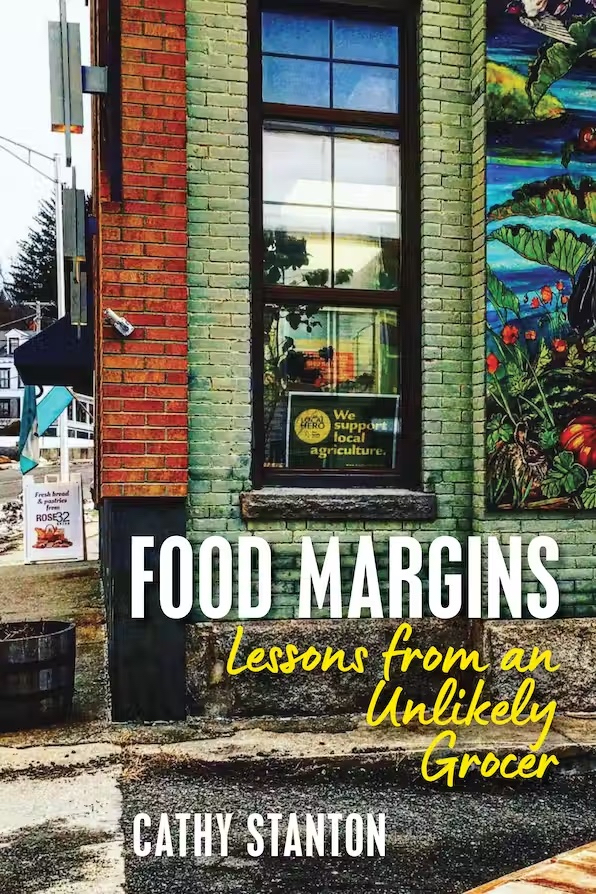
Once you've industrialized a food system, which is really what's happened in a lot of parts of the so-called developed world, it produces food very, very efficiently. It's amazing and hyper-abundant. But what that does, in a market system, is drive the prices down. Industrial food is very, very cheap per item, per individual tomato or whatever, because it’s produced so efficiently and at such a large scale. And so small farmers and retailers who are trying to sell in small markets find themselves caught in this squeeze where they can't possibly compete with how cheap it is for a supermarket to sell food or a big, big industrial producer.
That creates this fundamental dilemma for making change, because almost anything that we would do that would change the food system would make food more expensive. Even before inflation and the current moment when people are freaking out about food having gotten more expensive, there was no tolerance for food to get more expensive again for a whole bunch of good reasons and some bad reasons.
DY: It's interesting to hear you point out that, even in rural places, most people get their groceries from supermarkets. There's an irony to this problem of scale, which is that large cities can support farmers markets often much more successfully than small towns can, even if the small towns are where the produce is being grown.
CS: Exactly. There are a lot of weird disconnects. One is that cities used to need farms more because essentially the fresh perishable food was coming into the cities from places that were relatively close, before the infrastructure of refrigeration and transportation was quite so extensive. And now it's like farmers – and especially the people who are trying to grow at a small scale – really need those cities because that's where the density and often the affluence is that can support the alternatives to large-scale corporate agriculture, because that food is more expensive. It's great food, but it's not accessible to everybody.
And then meanwhile, you've got these rural places that are still very agricultural but people are not growing for themselves or growing for their communities. They're growing industrial raw materials to feed into this gigantic food system. They are ultimately feeding themselves but it comes back to them through the supermarket. They're not directly feeding themselves, but they're feeding the system that eventually does feed pretty much everybody.
DY: So, for instance, in your work with your local co-op, are there small-scale ways of addressing those ironies or those paradoxes? Have you developed any solutions or reversals?
CS: I don't know if we've gotten to a solution yet, but we have some strategies. So one of them is not to expect this little store to completely pay for itself with food sales. We're very little. There are lots of really good, solid, profitable co-ops, but they tend to be larger. At a small scale, in an area that's not wealthy, I think it's unrealistic to say the store should cover all its own costs. So we partner with nonprofits and agencies and municipalities to do some grant funded work. That helps to get food bundles to low-wealth families in the area, which helps the store because we are essentially selling that food. It means that we can tap into the nonprofit resources that are there to help people with food access and food insecurity. And that also serves our mission, which is to try to make this good food as available as we can to everybody, not just the people who can afford to pay the premium prices for it.
The other side of that is I'm just really interested in finding ways to get more people to understand this to see that it's not just about price. And that it's actually quite complicated how we've created the society that we have. It’s tricky to do because we're also trying to sell food and have a business. One of the reasons I wrote this book is that I’m interested in the food communications piece of it. How do we bring more people into an understanding of why our little store charges more for food? People ask “Why is this so difficult? Why are you continually fundraising? Why are you not able to cover your own costs?” It feels to me like a teaching moment to move beyond that first generation of enthusiasm for local food and farmers markets and little farms. That stuff is great, but a lot of newer food ventures have found that they can't stay in business. It's not sustainable. It's backbreaking work, often it's heartbreaking how quickly you can burn out a young farmer. So how do we get to a deeper understanding of what it would take to change the system as a whole?
DY: Do you feel like you've seen more consensus and more understanding build up in your town because of the co-op?
CS: I do think it's spreading. It's very gradual and kind of uneven. In the last couple of years, food prices have gone up and people have gotten mad. So support is not really deep and solid yet. But I will say that one of the most interesting and heartening things that has happened for me since I've been involved there is, when Covid-19 first came along and the lockdowns were happening and people were freaking out about where they were going to get food and whether the supermarkets were safe, people suddenly flocked to our little store because they felt safe there. It felt transparent. It felt like they were supporting somebody in the community and they knew where the food was coming from. The store was a lot smaller than the big supermarkets. And what that said to me was that people recognize the value of small scale production and rebuilding these kinds of local food economies. It just took a lot of stimulus to get people to act on it and not just do the convenient thing, which is go to the supermarket. And that waxes and wanes. It’s waning at the moment because people are convinced that the food prices are just too high, so we're struggling with trying to communicate again that we can't lower prices. But neither can the supermarkets, you know, that's that's the thing. They're also right on the edge of that very thin profit margin.
DY: I think a lot about how convenience can't really be put back in the bottle. It’s really difficult to make people go backwards from a certain level of ease. This seems like an example of that.
CS: I think that’s right and that's a good metaphor for it. It’s been over a hundred years now since the advent of processed food and chain stores and mass advertising of food, all of those things that create this abundance and the sense we should be able to get whatever we want whenever we want it. The supermarket is constructed to give us that experience and it's lovely, right? And so how do you get people to voluntarily walk some of that back? You see people doing it who have the means to go to a food co-op and pay more for good, ethical, sustainable food. And people did it really readily when Covid-19 came about and suddenly it was this crisis and the circumstances were different. I don't know how you get them to do it under normal circumstances. That's a huge challenge.
So the book is one way to try to get out there and to take a moment and look at the origins of how we got to this point where it feels so natural to go into a supermarket and just be able to get anything we want from anywhere we want. That's actually pretty weird.
DY: On the other hand, your writing seems really concerned with the fact that your co-op operates in a post-industrial, high-poverty town, where potentially there are lots of people who really cannot make those choices. And so I wonder whether you think about high-quality, ethical food as a luxury good or not.
CS: It's sort of bizarre that good-quality, nutritious, nourishing food is a luxury in the U.S. One of the things I thought was interesting about the story of this little co-op was that it's the kind of venture that tends to happen in college towns. or places where there are really affluent suburbs or a concentration of wealthier locavore eaters who can afford to subsidize that kind of eating. So what's interesting about our little store to me is its location in a depressed mill town.
I wouldn't say that Orange is post-industrial yet. I think we're still in the de-industrialized phase. Post-industrial to me would mean that there’s a new form of economic prosperity. Orange hasn’t figured that out yet, although people are always trying. But I think our store is a test case for pushing out beyond the usual suspects and strategies. This is something really different. It’s really on the bleeding edge of rural poverty, which brings its own particular set of challenges. How can a venture like this succeed in a place like this?
DY: The title of your book is “Food Margins: Lessons From an Unlikely Grocer.” Can you talk about some of the lessons?
CS: Some of it has to do with the play on words in the title about margins, meaning both the margins of society but also the point about the profit margins and how hard it is to make money selling food at any scale. That’s one of the lessons I’ve learned, is that the equation is really rigged against the small scale, especially in an area that's not wealthy. And then the other big lesson I think, is how much strength there is in having a deep network and a sense of roots. I’ve been here 35 years, so I’m still a transplant, but I've been transplanted for a while. The ability to mobilize and to move through the many layers of a place like this is what has kept the store alive. Because it really does take a whole community being committed. So I guess it's retaught me that lesson, of how much I value living in a place with these close knit and overlapping networks that make up a rural life.
This article first appeared on The Daily Yonder and is republished here under a Creative Commons license.![]()

